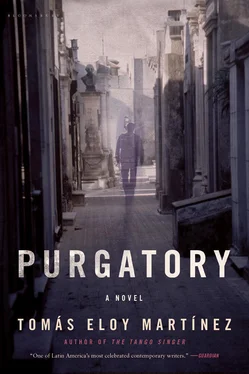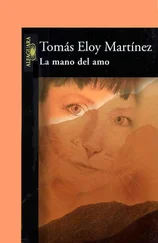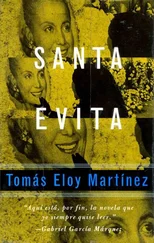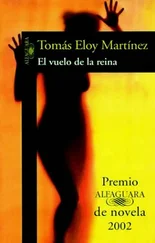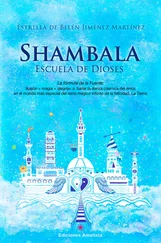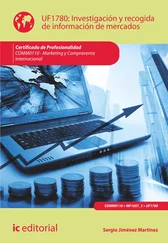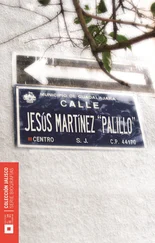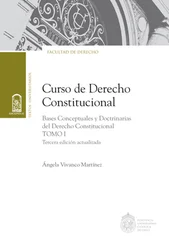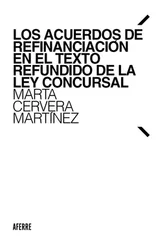Tomás Eloy Martínez - Purgatory
Здесь есть возможность читать онлайн «Tomás Eloy Martínez - Purgatory» весь текст электронной книги совершенно бесплатно (целиком полную версию без сокращений). В некоторых случаях можно слушать аудио, скачать через торрент в формате fb2 и присутствует краткое содержание. Год выпуска: 2008, Издательство: Publishing PLC, Жанр: Современная проза, на английском языке. Описание произведения, (предисловие) а так же отзывы посетителей доступны на портале библиотеки ЛибКат.
- Название:Purgatory
- Автор:
- Издательство:Publishing PLC
- Жанр:
- Год:2008
- ISBN:нет данных
- Рейтинг книги:5 / 5. Голосов: 1
-
Избранное:Добавить в избранное
- Отзывы:
-
Ваша оценка:
- 100
- 1
- 2
- 3
- 4
- 5
Purgatory: краткое содержание, описание и аннотация
Предлагаем к чтению аннотацию, описание, краткое содержание или предисловие (зависит от того, что написал сам автор книги «Purgatory»). Если вы не нашли необходимую информацию о книге — напишите в комментариях, мы постараемся отыскать её.
"Purgatory" narrates the anxiety of the love lost and then found in a magnificent reconstruction of the sinister events that went down in the time of the regime in Argentina.
Purgatory — читать онлайн бесплатно полную книгу (весь текст) целиком
Ниже представлен текст книги, разбитый по страницам. Система сохранения места последней прочитанной страницы, позволяет с удобством читать онлайн бесплатно книгу «Purgatory», без необходимости каждый раз заново искать на чём Вы остановились. Поставьте закладку, и сможете в любой момент перейти на страницу, на которой закончили чтение.
Интервал:
Закладка:
‘I visited the museum in 2005, and I have no wish ever to go again.’
‘Was it a painful experience?’
‘It was painful in a sense, but that’s not why. I experienced the same unreal sensations you’re talking about. I heard voices, I sat down on a terrace next to my dead father, there were past lives inside me struggling to come out. I’d read somewhere that the museum is an architectural masterpiece, and it is. I can’t explain why, there are lots of books about it. I don’t want to overwhelm you talking about the angles, the weird vertical planes, the ceilings that seem to be falling in on you, the silences that open and close up as you walk through, but you quickly find yourself in a different reality, one that you feel you could be lost in forever. For years, you’ve lived in exile, moving from place to place, Emilia; you think you know what it is, but you couldn’t begin to explain it, there are no stories, no words in this desolate terrain because everything within you remained outside the moment you crossed the threshold. You might say that at that moment you entered purgatory, if what came before was hell (and it wasn’t, at least for me it wasn’t), if after was paradise, which never came. And when the wandering is over, when you go back to the home you left behind, you think you’re closing the circle, but visiting the museum you realise that the whole journey has been a one-way trip, always leaving. No one returns from exile. What you forsake, forsakes you. To the south of the museum is what’s called the Garden of Exile, forty-nine columns that rise (no, they don’t rise — every verb seems inadequate: rise, extend, stretch away?), forty-nine hollow columns of decreasing height; an oblique vision of life. Out of each column emerges a tree: you can’t tell where the tree comes from, all you can see is the desperate struggle of the branches to reach the light, to meet the sky they once lost. Pity moves you to walk between the columns so the trees will not feel so alone. You walk. The ground is cobbled and sloping, an edge of the world towards which things slide until finally they fall. By the time you’ve taken two steps, you are nowhere, there are no columns, there are no trees, there is no sky, the compass that guided you has disappeared, your reason for existing has been wiped out, you are nothing and you have stopped in a place from which no one ever returns. Exile.’
I went over to the mirror and looked at myself. The photo of a young Simón smiled at the mirror from the nightstand. The room was a mess; it was strange that Emilia, usually so fastidious, allowed me to go in. Magazines lay open on the bed, the sort people read while they’re queuing at the supermarket, featuring huge photos of Jennifer Lopez pregnant with twins, Britney Spears in her rehab clinic. I would never have imagined Emilia had such a morbid curiosity about the lives of others, though it made sense: the Emilia who collected coupons and played bingo belonged to that niche. It is impossible really to know another human being completely, and I had only ever seen Emilia on one side of the eruv , I never knew what became of her when she crossed over. I talked to her from where I stood, trying to reassure her. ‘I’m standing in front of the mirror, Emilia. There’s no one here. All I can see is the idiot standing here talking to you, I can see a shadow beside me, but it’s the idiot’s shadow. Try as I might, I’ll never see Simón because the only reason for your Simón to exist is for you alone to see him.’
When did that happen? When was it that Emilia phoned me asking for help? When did I go round to her house and stand staring at myself in the mirror, and leave without recognising my own body, feeling that memories that were not mine had entered into my body and I could not shake them off, memories that insisted on staying inside me even though I ran out? I didn’t make a note of it in my diary and recently the days have become confused. I haven’t seen her since then. I tried calling her at Hammond to talk to her about the novel I’m writing but they told me that she’d stopped coming in. I went by her house a couple of times and was surprised not to see her beat-up silver Altima parked on North 4th Avenue or in the parking lot at Rite Aid where she sometimes left it.
More than once I was on the point of telling her something about my novel. But I held back, out of shyness, out of shame, for the nameless reason that drives all writers to hide what they are doing until it’s finished. I said nothing because I was foundering in a swamp of first drafts I still haven’t climbed out of. She is the character on which the story turns, she was even before I knew her, and now I’d rather not carry on with it until we have had a serious conversation. I’m not waiting for her to give me permission to continue — characters aren’t censors, they don’t interfere in what happens to them. But Emilia is not simply one of my characters, she is also a human being, someone I know, someone I run into at Stop & Shop, a friend who has confided in me. Or is she simply someone inside me the way Simón is inside her? Before going out to look for her I remembered the lines of Felisberto Hernández: One can betray only when one lives with others. But with the body in which I live, no betrayal is possible . This, Felisberto used to say, is a hopeless situation. I have to clarify things with Emilia, work out where she begins and I end. Not knowing makes me uneasy.
Writing has always been a liberating act for me, the only place myself could roam without having to explain itself. While I write, I let myself go. Only after I have taken a few steps do I think about the boundaries of what I am doing: whether I am headed towards a novel or an essay, whether this is a story or a film script or a profile of the dead. I most often get lost when I try to go beyond the boundaries. Though the boundaries may resist, still I cross them. I want to see what’s on the other side of the words, in the landscapes that are never seen, in the stories that disappear even as they are being told. Perhaps if I devoted myself to poetry I might catch a glimpse of this horizon I can never reach. But I am not a poet, something I regret. If I were I would be able to name the true nature of things, unerringly find the centre rather than becoming lost on the margins. What am I going to say to Emilia when I see her?
That human beings are responsible for everything except our dreams. Many years ago now, before I met her, I dreamed of her and I transformed that dream into the first lines of a story that I have carried with me from country to country, believing that some day I would have the dream again and I would feel the need to complete it. I dreamed that I went into a seedy restaurant where an elderly woman was sitting at one end of a long table staring at one of the people eating with her. At that moment, I knew, with the blinding clarity we have in dreams, that the woman was a widow and the man was her husband who had been dead for thirty years. I also knew that the husband was the man he had been, his voice, his age those of the time he died.
When I woke up, I was excited, imagining the pleasure that elderly woman would feel to be loved, to be made love to by a much younger man. I didn’t care whether he was her husband or not. It seemed to me to be an act of poetic justice, since in most stories, the situation is reversed. I started writing, not knowing where my search would take me. I didn’t know what the husband was doing in that seedy restaurant, nor why time, for him, seemed to have been suspended. Those thirty years of separation — I thought — somehow echoed the emptiness of the thirty years I had spent exiled from my country and which I hoped to find, when I went back, exactly as I had left it. I know that it is an illusion, naive in the way all illusions are, and perhaps that was what attracted me, because those lost years will always haunt me and if I narrate them, if I imagine every day I did not live, perhaps — I thought — I could exorcise them. I wanted to remember what I didn’t see, recount the life I would have had, looking after my children, loving them, wandering through the cities of Argentina, reading. I wanted the impossible, because I could not have lived oblivious to the torture victims, to the prisoners held without trial, to the slaves in the death camps working for the greater glory of the admiral and the Eel. I wanted to be Wakefield, to disappear completely from the world and come back home one day, open the door and find nothing has changed. I wanted to know what it would have been like, the life of a writer forbidden to write. The questions tormented me, gave me no peace, and in desperation, I set about answering them. The phrase sounds melodramatic, but it is true nonetheless. I wrote quickly, page after page, eager to find out what happened next. I worked at a frantic pace unfamiliar to me. In general I can spend hours agonising over a single sentence, sometimes a single word, but in this book, almost without realising it, the writing consumed me, gambling in a race against death. True to form, death came looking for me. I had written about eighty pages when illness laid me low. In hospital, I began to see things differently. I thought about all the things that disappear without our even noticing, because we know only what exists, we know nothing of those things that never come into existence; I thought about the non-being I would have been had my parents conceived me seconds earlier or later, I thought of the libraries of books never written (Borges tried to make up for this absence in ‘The Library of Babel’), but all that remained was the idea, there was no flesh, no bones, a magnificent, lifeless idea. I thought about the Mozart symphonies silenced by his untimely death, about the song running through John Lennon’s mind that December night when he was murdered. If we could recover the unwritten books, the lost music, if we could set out in search of what never existed and find it, then we should have conquered death. While I was lying there waiting for death I thought that perhaps this was the way to get my life back. So I abandoned the novel I had been writing, and started this novel, which is filled with what does not exist and at its heart, still, is Emilia, who had taken my hand at Toscana and guided me through her labyrinth. You might say I found her before setting out to look. For her, it breathed new life into her hopes of seeing Simón again; for me, it breathed new life into this book.
Читать дальшеИнтервал:
Закладка:
Похожие книги на «Purgatory»
Представляем Вашему вниманию похожие книги на «Purgatory» списком для выбора. Мы отобрали схожую по названию и смыслу литературу в надежде предоставить читателям больше вариантов отыскать новые, интересные, ещё непрочитанные произведения.
Обсуждение, отзывы о книге «Purgatory» и просто собственные мнения читателей. Оставьте ваши комментарии, напишите, что Вы думаете о произведении, его смысле или главных героях. Укажите что конкретно понравилось, а что нет, и почему Вы так считаете.
